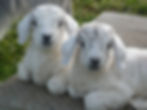
Guinea Pigs
Guinea Pigs come in all shapes and sizes. Long haired and short plus all in between. They make wonderful family pets but are a big commitment often living beyond 5 years old. They can be quite vocal and engaging. Are suitable for residential homes and can be kept both indoors or outside. They are easy to fall in love with and full of character. They are much happier with a companion than being housed on their own. Lone pigs can get very stressed so please ensure you have adequate facilities for at least a pair. We currently breed pet Alpacas, Texels, Peruvians, Silkies, Rex's and Teddy hair types. Males are $30 each and females $50 each. All the photos below are of some of our breeding piggys. Guineas can be timid at first so don't expect an outgoing pet straight away. Once you have established a bond though and trust with your pet they are such engaging beauties that will often sing to you as soon as they hear you, happily be petted although most don't like initially being picked up. And will fill you with joy when you watch them bounce around a clean cage pop-corning their little happy dance.
Please go to our sale page to view what we currently have available or please don't hesitate to contact me to be added to our waiting list and I can advise you of expected pups.

Housing
GP's will start to smell if their bedding and any spoiled food is not cleaned out regularly. They can also develop serious health issues if their cage is too small and not well ventilated and they are in dirty surroundings. There is a wide selection of bedding material suitable for your cavy's whether they are housed inside or out. Fleece, material bath mats, dust extracted shavings, lawn and fresh hay are all good options.
They also require habitat enrichment to starve off boredom and a place to hide and feel safe. They love tunnels and caves.

Diet
To survive cavy's need 25-30 mg of vitamin C per day as they are unable to make their own. Pregnant or lactating sows require 40-50 mg per day. Capsicum consumption will supply the necessary daily dose of vitamin C for most GPs. It also has the benefit of antioxidants which help boost their immune system.
A good quality meadow or oaten hay supply 24/7 and fresh grass/weeds that haven't been treated with any chemicals plus a pellets specifically formulated for GP's provides the basis for a good diet along with daily leafy greens such as kale, herbs, rocket. Root veggies and fruit can be offered occasionally as treats.
We use Jack Rabbit Micro Pellets & Pet Mix.


.jpg)

Health
Watch your pets for lice which can be easily treated with a small dose of ivermectin on the backline. If you notice diarrhea, loss of appetite, excessive scratching, breathing problems or wounds & hair loss please seek out the help of a knowledgeable vet.
Long haired guineas need a weekly comb through, matts removed, a summer trim as they are quite heat sensitive and their coat needs to be kept clear of their feet and bottom. Regular nail trimming for all GP's is needed too.
Caution is advised when keeping males together. Ensure they have bonded as they can sometimes fight over territory. Males and females should never be kept together unless your intentionally breeding as baby boys can become sexually mature at just 3 weeks old.

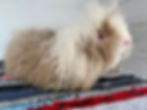
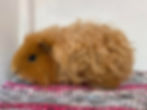

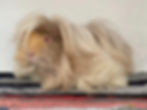

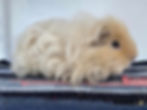



.jpg)


